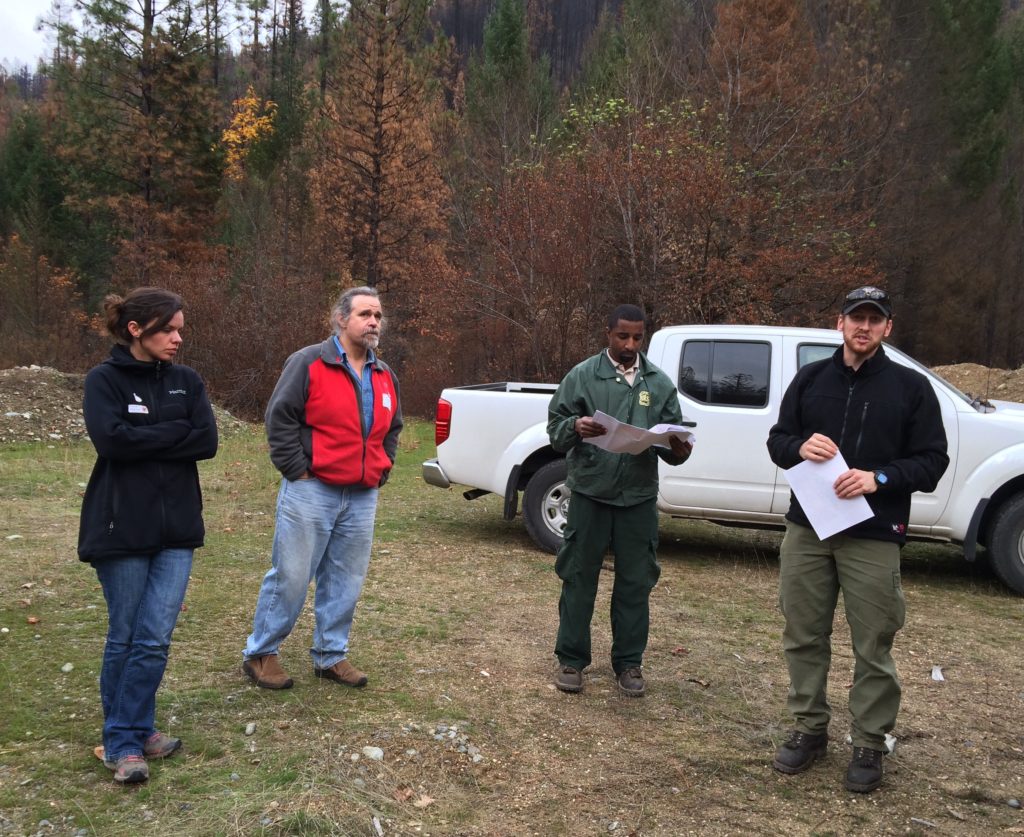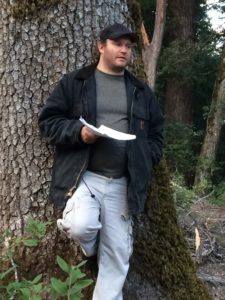
During an Open Standards field exercise, participants discuss shared values, threats, and strategies in the context of a recent wildfire. Photo by M. Huffman/TNC.
Story from Mary Huffman, TNC, Fire Learning Network
The area around the Klamath River in California is known for its biodiversity, indigenous traditions of fire management, high rates of unemployment, and fights about old growth forests. Conservationists believe that the right approach could revitalize Karuk tribal culture, support a monetary forest economy, and deliver clear, cold water to salmon streams. Although collaboration between the US Forest Service, the Mid-Klamath Watershed Council, the Salmon River Restoration Council, and the Karuk Tribe led to some gains in river-related restoration, deep-rooted conflicts have barred real progress. About a decade ago, the group of community conservationists who had been working in the area decided to halt their efforts until conditions improved.
After talking with key stakeholders in 2013, Lynn Decker of the Fire Learning Network surmised that the Open Standards process might help uneasy partners find a new path forward. Over the next year and a half, three CCNet coaches from the Fire Learning Network led a series of Open Standards workshops and taught participants new collaboration techniques and facilitation skills.
“In the early days, we would put adversaries together in small groups and just hope we could get away with it,” recalls Decker.

Bill Tripp, visionary and co-lead of the Western Klamath Restoration Partnership explains the ecology of tanoak trees in the Klamath Bioregion and their significance for food security in Karuk culture. Photo by M. Huffman/TNC.
During the Open Standards workshops, long-time adversaries began to see areas of agreement. Two years later, participants in the Western Klamath Restoration Partnership have rallied around a set of shared values. They are working toward recovering the historical proactive relationship between the land, its communities, and fire; creating sustainable, diverse revenue streams; and integrating indigenous food security into forest management. The group has developed a GIS-based map of where strategic hand-clearing of brush, mechanical tree harvest, and controlled burning would support these shared goals.
The path forward has not been perfectly smooth. Right now, members of the partnership are opposing each other in court over a post-wildfire timber sale that was led by the Forest Service; however, dedication to their new goals is so strong that these same people are continuing to work together on projects that were born during the workshops.
To better understand the role of the Open Standards in this collaboration, see the blog that Bill Tripp wrote for the Fire Adapted Communities Network. Bill is a co-lead of the Western Klamath Restoration Partnership and the Karuk Tribe’s Deputy Director of Eco-Cultural Revitalization.
